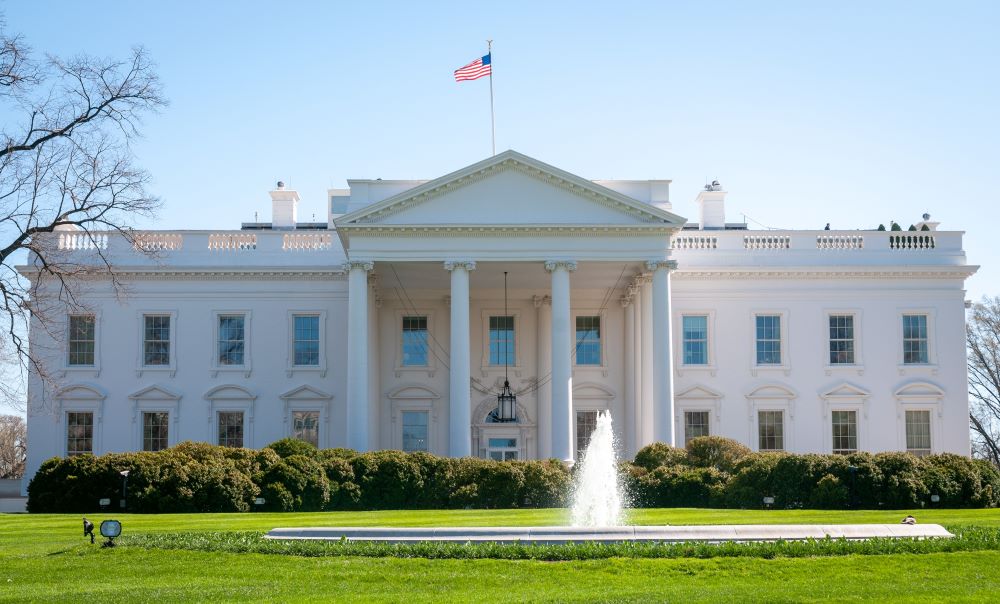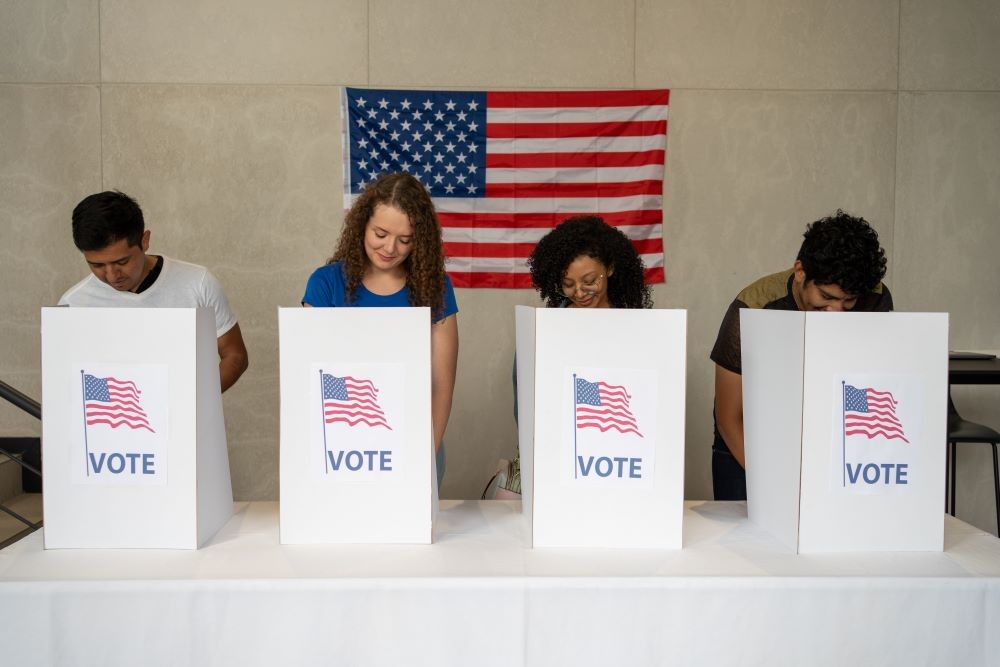By the time election day arrives, most are sick of hearing about politics no matter their political leanings.
But the policy positions of candidates up and down the ballot, and the people they bring aboard following a victory, will undoubtedly have an impact on all our lives. No matter what opinions you have regarding specific issues, you can bet that the attendees and stakeholders involved with your meetings and events may have very strong opinions that impact where, when and how you hold events.
From hot-button social issues to labor concerns, immigration and the economy in general, elections indeed have consequences.
Here's our non-partisan, unbiased guide to some of the issues in this election that will impact your day-to-day life as a meeting and event planner.
Ballot Measures
While all eyes will be on this year’s presidential election, there are also hundreds of other candidates and issues on the ballots in many states this election cycle. While the race for president certainly garners the most national media attention, it is oftentimes the races for Senate and the House of Representatives that truly shape the U.S. over the next few years.

Roger Rickard is the founder and president of Voices In Advocacy, which helps organizations improve their effectiveness when advocating for social, political and economic issues that affect them. After 15 years, Rickard has become an expert on how political issues and politics intersect with the meetings and events industry.
Rickard believes that there is more at stake in this election cycle than who sits in the Oval Office, and that certain ballot measures could also have a major impact on the meetings industry depending on their result.
“Voters will decide on 11 abortion-related ballot measures, the most on record in a single year. Ten states would provide constitutional rights to abortion, one would limit the time frame,” Rickard said. “But the reason I think that’s important is boycotts. Over the years within the meetings industry, there have been cultural issues that have driven boycotts, on both the left and the right, and I fear that you might see some organizations step forward and decide to do certain boycotts based on that.”
Destination boycotts are nothing new to the meetings industry, with recent boycotts of states like Florida and Texas over DEI legislation and abortion rights, respectively. And in the 1990s, tourists and companies boycotted states like Arizona based on the state's refusal to recognize Martin Luther King Jr. Day as a paid holiday, resulting in the state losing out on millions of dollars in business, mainly from the loss of hosting the Super Bowl.
[Related: What Meeting Planners Need to Know About Destination Boycotts]
Minimum Wage
Wages are on the ballots in six states, with some measures proposing to raise the minimum wage, some impacting tipped workers and some addressing sick leave. For instance, one of Alaska’s ballot measures would both increase the minimum wage to $15 per hour and provide the ability for all employees to accrue sick leave hours.
Rickard believes that some of these ballot measures could represent a raising or lowering of meeting planning costs, especially if the companies choose to reflect these changes in their pricing models. This may cause some planners to choose to avoid certain destinations that would pass some of these minimum wage ballot measures.
However, some associations may choose to “reward” certain destinations that pass these measures, choosing to vote with their economic clout to encourage better treatment of minimum-wage workers.

Reproductive Rights
Arizona, Colorado, Florida, Missouri, Nevada and South Dakota all have ballot measures that would provide state constitutional protections for abortion. The potential for states who have restrictive abortion laws to be boycotted by the industry is certainly a major possibility. Similar to how associations or companies could choose to reward states for passing protections for workers, many of those same organizations could choose to boycott or not even consider destinations in states where abortion rights are not codified into law.
There have been multiple examples of this happening over the past few years, most notably in Texas, where many groups (especially those in the medical sector) have chosen to boycott conferences or events held in Texas due to the state’s restrictive laws regarding abortion. Many organizations may also choose to do what Rickard calls a “soft boycott” in which they do not formally announce a boycott of a particular state or city, but just choose to overlook the destination during the selection process due to controversy.
DEI Initiatives
While there are currently no ballot measures directly relating to DEI programs, there are ballot measures that codify same-sex marriage into the state constitution or state law, most notably in California, Hawaiʻi and Colorado.
While same-sex marriage is currently legal in all 50 states following the 2015 Supreme Court case Obergefell v. Hodges, based on the recent overturning of Roe v. Wade and the potential for the court to become more conservative in the event of a Trump presidency (with Trump already having appointed three “conservative” judges during his first term), we could see the Supreme Court overturning its 2015 decision protecting same-sex marriage. This would cause the issue of same-sex marriage to once again be up to each state, much like how abortion is now, creating the potential for destination boycotts for states that don’t codify same-sex marriage in their state constitution, making the current ballot measures in the three states potentially important down the road.
How the Next President Impacts Meetings
While there are many issues that planners may care about on a personal level (democracy, climate change, drug policies, etc.), there are only a few policies that would drastically change the meetings and events industry depending on who wins the White House: the economy and immigration.

While the president does not have unilateral power to solely impact either of these issues, both candidates have made campaign promises in these two areas that would be within the power of the president to control via executive orders.
While these two issues are certainly among the most divisive of this campaign cycle, here’s what the experts say about each of the candidates’ proposed policies.
Immigration and Mass Deportation

The Republican nominee for president, Donald Trump, has made the issue of immigration a key point of his reelection campaign, promising sweeping changes to the current U.S. immigration system and a mass deportation of millions of undocumented immigrants. Regardless of what you think of Trump’s stated plan, one thing is for certain; the deportation of millions of immigrants would have massive ramifications on the U.S. economy and labor force.
Again, regardless of whether you think the deportation of undocumented immigrants is a positive or negative policy for the country as a whole, the costs associated with a mass deportation program would be substantial, not only to the government but for the economy as a whole. It is estimated that undocumented immigrants pay $96.7 billion in taxes annually, which would most likely impact funding for DMOs around the country who rely on revenue from taxes to advertise their destination.
Additionally, it is estimated that there are 8.3 million undocumented immigrants in the U.S. workforce, making up 5% of the country’s overall workforce.
And while it is difficult to determine, studies suggest that undocumented immigrants make up approximately 10% of the hospitality labor market, although those numbers were released in 2014 and rates of undocumented immigration have drastically increased since then, making the share of undocumented immigrants in the hospitality workforce likely much higher.
[Related: U.S. Labor Shortage Affecting Your Meetings? Try Mexico and Caribbean All-Inclusives]
The deportation of these undocumented immigrants would create a massive vacuum in the hospitality labor market, which would disrupt the supplier side of meetings and events and likely impact how many people are available to work and serve the meetings industry.
Mass deportations would also likely have an effect on hospitality wages, given the depletion of the supply of laborers in the industry will cause wages to naturally increase to meet worker demand. And with the hospitality industry already struggling with workforce issues since the pandemic, mass deportations would likely exacerbate those issues.
The Economy: Proposed Tariffs vs. Price Gouging
The economic impact of the election is something that is very top-of-mind for many voters this cycle, as well as many meeting and event planners.
According to Global DMC Partners, DMCs reported a 30% increase in pricing across airfares, accommodations, staffing and other essentials, with 79% of event professionals noting higher expenses, according to Boldplus. This makes the issue of the economy and inflation of paramount importance to both planners and suppliers, and both candidates have put forward proposals on how to reduce costs (or at least limit inflation).
[Related: Industry Insights from Global DMC Partners’ 10th Annual Connection]
Trump has announced that a big part of his new economic plan will be to impose massive tariffs (up to 100% or more) on foreign goods imported into the U.S.. Trump has said that tariffs will be used to punish countries for unfair trade practices and discourage U.S. companies from moving jobs overseas. Trump has also asserted that these tariffs will be paid by foreign countries and foreign companies, bringing back jobs to the U.S. and boosting the American economy.
However, many economists agree that Trump’s proposed tariffs would not benefit the U.S. consumers or the overall U.S. economy, and that much of the costs associated with the tariffs would be paid by American consumers.

In June, 16 Nobel Prize-winning economists signed a letter expressing fears that Trump’s economic proposals would reignite high levels of inflation. In September, the Peterson Institute for International Economics predicted that Trump’s economic policies (including the deportations, import taxes and efforts to erode the Fed’s independence) would drive consumer prices sharply higher.
In contrast, the Democratic party nominee for president, Kamala Harris, has proposed her own set of policies to combat inflation, proposing a ban on price gouging by food suppliers and grocery stores. The majority of states already restrict price gouging, but there is currently no federal restrictions on the practice. Many economists believe that Harris’ proposal will not do much to lower prices, saying that price gouging is probably not the main culprit behind the recent spike in inflation.
The meetings and events industry will probably feel the effects of any economic plans put into place by either of the candidates, with the most hopeful result being a slowdown of the stifling inflation rate.
More Questions Than Answers
Overall, while the election might seem as though it’s the end of a long and often gut-wrenching campaign cycle, Rickard believes that the election might bring more questions than answers for many in the industry.
“I think that there are going to be more questions than answers based on the actual results,” he said. “In other words, will there be economic uncertainty due to the results? Will there be threats of actions regarding the tariffs? How will companies react to different things that the results created? Will they react differently based on certain ballot measures? Will they choose to slow down or cancel meetings?”
But in the end, it’s YOU who decides how this election will turn out, and also you who can advocate for the meetings and events industry in ways that extend far beyond the ballot box.
Read this next: Destination DC's Elliott Ferguson on How the 2024 Election Will Impact Meetings and Events







